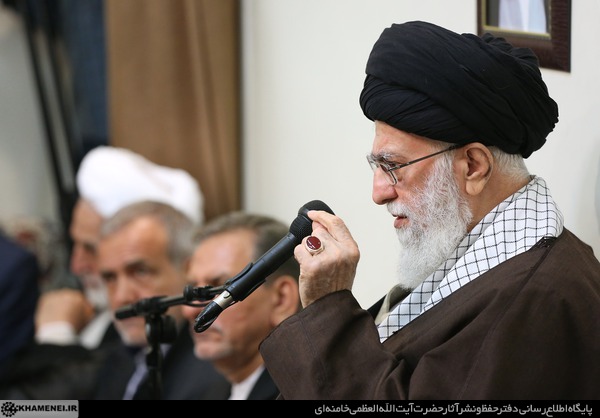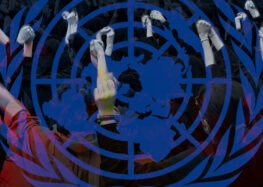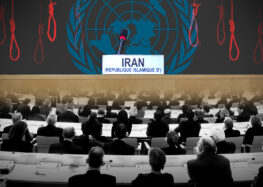Supreme Leaders Uses Fatwa to Silence Widespread Distrust of Domestic Apps

Religious Ruling Follows News That Widely Used Telegram App Will Soon Be Blocked
Following a recent flurry of public criticism of domestically made messaging apps, Iran’s supreme leader has issued a fatwa calling on the government and the Judiciary to protect citizens’ personal privacy rights.
“Violating the people’s security and domestic space is religiously haram [forbidden] and should not take place,” said Ayatollah Ali Khamenei in a meeting with state officials on April 9, 2018.
“Authorities in government and judicial agencies should be careful that people’s private living spaces and secrets will be protected,” he added.
That Khamenei issued the religious ruling after Iranians took to social media to declare that they would never use domestic messaging apps due to their inherent security flaws is a rare acknowledgment by the supreme leader of a serious problem caused by the state.
The internet is heavily censored and monitored in Iran, with millions of websites blocked along with widely used foreign apps such as Facebook and Twitter banned.
By virtue of having their servers inside Iran, the data contained in domestic-made apps, including personal communications, is vulnerable to state surveillance.
According to Article 1 of Iran’s Cyber Crimes Law, “Anyone who illegally gains access to protected computer data will be punished from 91 days to a year and or fined from five to 20 million rials ($151 to $603 USD).”
But with hardline state security and intelligence organizations in control of Iran’s telecommunications infrastructure, their ability to access private online communications, unhindered by any judicial oversight, poses grave threats to Iranian users.
Individuals in Iran have been arrested and sentenced to lengthy prison terms on the basis of online content unlawfully obtained by the state in this manner.
The criticism of domestic-made apps was sparked after the chairman of the Parliamentary Committee for National Security Affairs and Foreign Policy suggested that Telegram, a foreign-made messaging app used by a reported 40 million people in Iran, would soon be blocked.
The fatwa follows various attempts by state officials to convince Iranians to abandon their security concerns and use domestic messaging apps.
But these privacy and security concerns have not only been raised by journalists and activists and members of the public on social media, they have also been brought up by senior state officials.
“Unfortunately, because of poisonous propaganda, the people don’t have complete confidence and trust in domestic apps and they think that their privacy will be violated or that they will face some problems,” said Telecommunications Minister Mohammad Javad Azari Jahromi on January 14.
After the supreme leader issued the fatwa, an outspoken reformist member of Parliament warned against using it as an “excuse” to ban other apps.
“This fatwa is excellent and [so is] trust-building if it is effectively carried out by the authorities, but not if they use it as an excuse to filter other messengers,” tweeted Mahmoud Sadeghi tweeted on April 9.
Some Iranians were more cynical about the efficacy of the fatwa.
Reza Shokrollahi, the writer and editor of Khabgard tweeted: “If the issue can be solved with a religious fatwa, then why don’t they issue a fatwa banning membership in Telegram so that the entire nation can forget about Telegram?”






